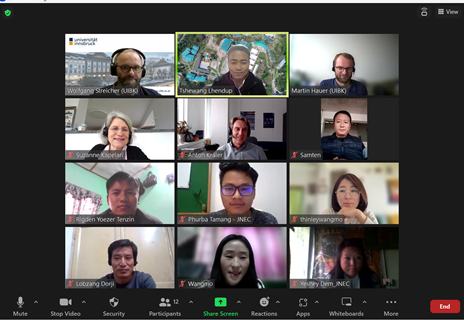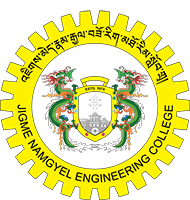![]()
HEESeB-Strengthening Capacity of Higher Engineering Education for Sustainable Buildings funded by APPEAR Academic Partnership, Austria.
Jigme Namgyel Engineering College in collaboration with Innsbruck University (UIBK), Austria has been awarded APPEAR (Austrian Partnership Programme in Higher Education and Research for Development) project in its ninth call for Academic partnership. APPEAR is a programme of the Austrian Development Cooperation (ADC) with the aim to implement its strategy for support of higher education and research for development on an academic institutional level in the ADC’s priority countries. For the first time in JNEC’s timeline, a bilateral project is being coordinated by JNEC.
This project ‘Strengthening Capacity of Higher Engineering Education for Sustainable Buildings (HEESeB)’ has two key objectives:
- develop a new academic programme on timber engineering for energy efficient buildings leading to an award of “Certificate in Timber Engineering for Energy Efficient Buildings” including advanced timber engineering laboratory;
- develop two new courses at JNEC: Gender, equity and diversity sensitive science, technology, engineering and mathematics (STEM); Building modelling and simulation, and HVAC;

Additionally, JNEC will receive the following benefits over the next three years.
- Advanced timber engineering laboratory.
- 10 days Training of Trainers (ToT) on timber engineering at UBIK for 10 academics and support staff;
- 8 days ToT on building simulation & HVAC;
- 5 days ToT on gender, equity and diversity-sensitive science, technology, engineering and mathematics (STEM) teaching at JNEC.
- Semester abroad for two students from JNEC and UIBK.
- Teacher exchange for two teachers from JNEC and UIBK.
The kick-off meeting was held virtually on 23rd February which was attended by all project working members. The project will be implemented between February 2023 to February 2026.
